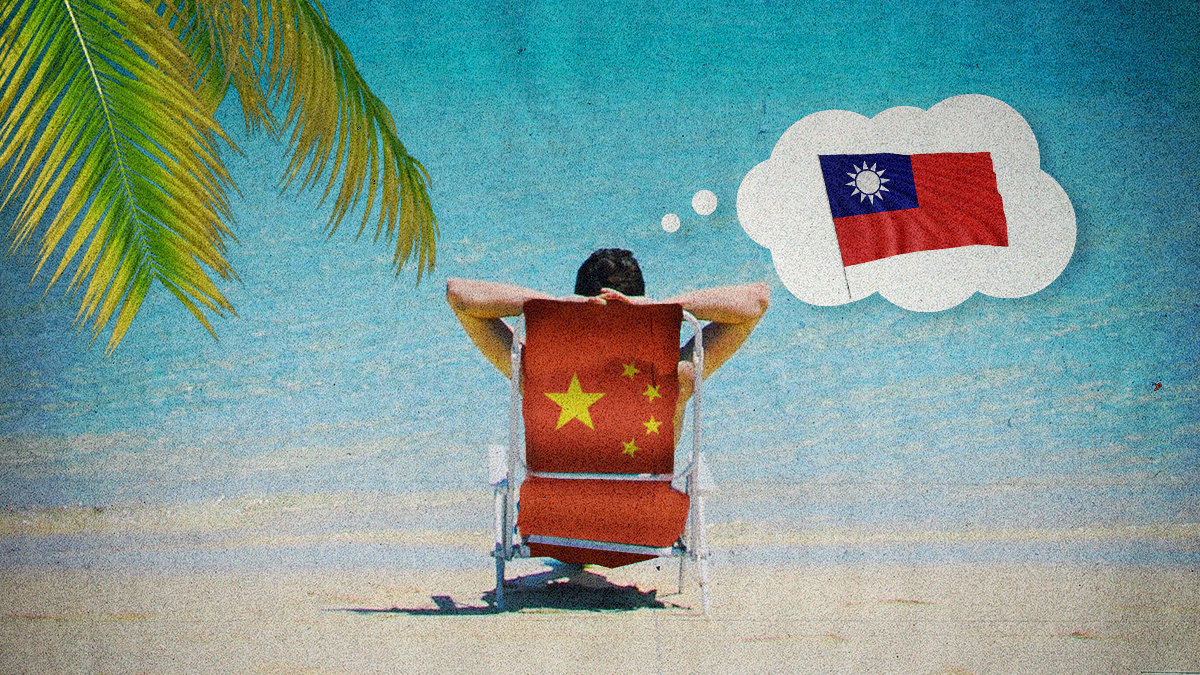This week, the crème de la crème of China’s ruling Communist Party wrapped up its annual summer retreat at the coastal resort town of Beidaihe, east of Beijing. The closed-door, low-key gathering was this year supposed to be just another milestone before the 20th Party Congress in the fall, when Xi Jinping is expected to secure a norm-defying third term as CCP secretary-general.
The Beidaihe conclave is considered the biggest unofficial event on China's political calendar. Media are kept far away to keep deliberations frank and veryprivate. Good clues of an ongoing meeting are CCP senior officials suddenly vanishing from TV or security being stepped up in Beidaihe. (This year, the town briefly banned Teslas, presumably to prevent the high-tech EVs from collecting data on the party elite.)
We know the 2022 edition is now over because Xi finally reappeared Wednesday after two weeks out of the limelight.
Xi needed a break in part because China has so far had an awful 2022.Zero-COVID is killing the economy; businesses can’t keep the lights on due to an energy crunch; the real estate sector is drowning in debt; and China’s refusal to condemn Russia’s war in Ukraine has made getting along with the US and its allies even harder.
Hardly a rosy outlook for Xi amid rumors of being in some trouble himself earlier this year.
Still, the CCP thought it had all its ducks in a row … until US House Speaker Nancy Pelosi crashed the party by going to Taiwan right as the CCP bigwigs were doing shots of Maotai by the beach.
How did her visit factor into the Beidaihe talks about China’s plans for the self-governing island that Beijing claims as its 23rd province? And how might it affect Xi's party standing in the lead-up to the 20th congress?
Much ado about Taiwan. Chinese leaders have publicly interpreted Pelosi's visit as the US meddling in China's internal affairs. Privately, though, they might feel that whatever America does, Beijing is running out of non-military options to take control of the island before the target date of Oct.1, 2049, the 100th anniversary of the People's Republic.
The odds of a peaceful reunification under Hong Kong’s (now-doomed) ‘one country, two systems’ model “are declining to nearly zero," says Lynette Ong, a University of Toronto professor and author of the recent bookOutsourcing Repression: Everyday State Power in Contemporary China.
China will pay a steep price for annexing Taiwan against its will. US sanctions on tech exports to China have made Beijing more reliant than ever on Taiwan's semiconductors — and China can't fill the gap in the short or even medium term. Still, Ong believes that Pelosi's visit "has hardened the resolve among Chinese leaders that something needs to be done."
Also, the events of the past two weeks have made the party more uneasy about what external players might do next. That has likely “reinforced Xi's view that China's strategic environment is becoming more complex," says Neil Thomas, a senior China analyst at Eurasia Group.
Expect the CCP to be more forceful from now on in pushing back with bigger shows of force around Taiwan’s skies and waters if the US does anything to alter the status quo — like holding trade talks with Taipei or Congress passing a bipartisan bill that aims to end America's 1979 policy of "strategic ambiguity" about defending the island.
Escalating on Taiwan is a double-edged sword for Xi. On the one hand, it might fan nationalist flames — and divert public attention away from the economic slowdown, which started in late 2021 (and has nothing to do with the island).
"China's growth troubles [stem] from policy decisions over many decades that have contributed to declining demographics, lagging productivity, and mounting debt," Thomas explains. "Xi is trying to innovate China out of this predicament, but his bet is not turning out as well as he hoped."
On the other hand, a miscalculation — or going too far on the military muscle-flexing — could trigger an armed conflict with America, which China's leader would be foolish to start.
Xi has a lot to lose from picking a fight with the US over Taiwan, which would be “inherently unpredictable and risk undermining his authority before the 20th Party Congress," says Thomas. Since the secretary-general already dominates the CCP, he doesn't need to do anything rash to prove his nationalist street cred.
"Firm responses and measured escalation are enough.”
